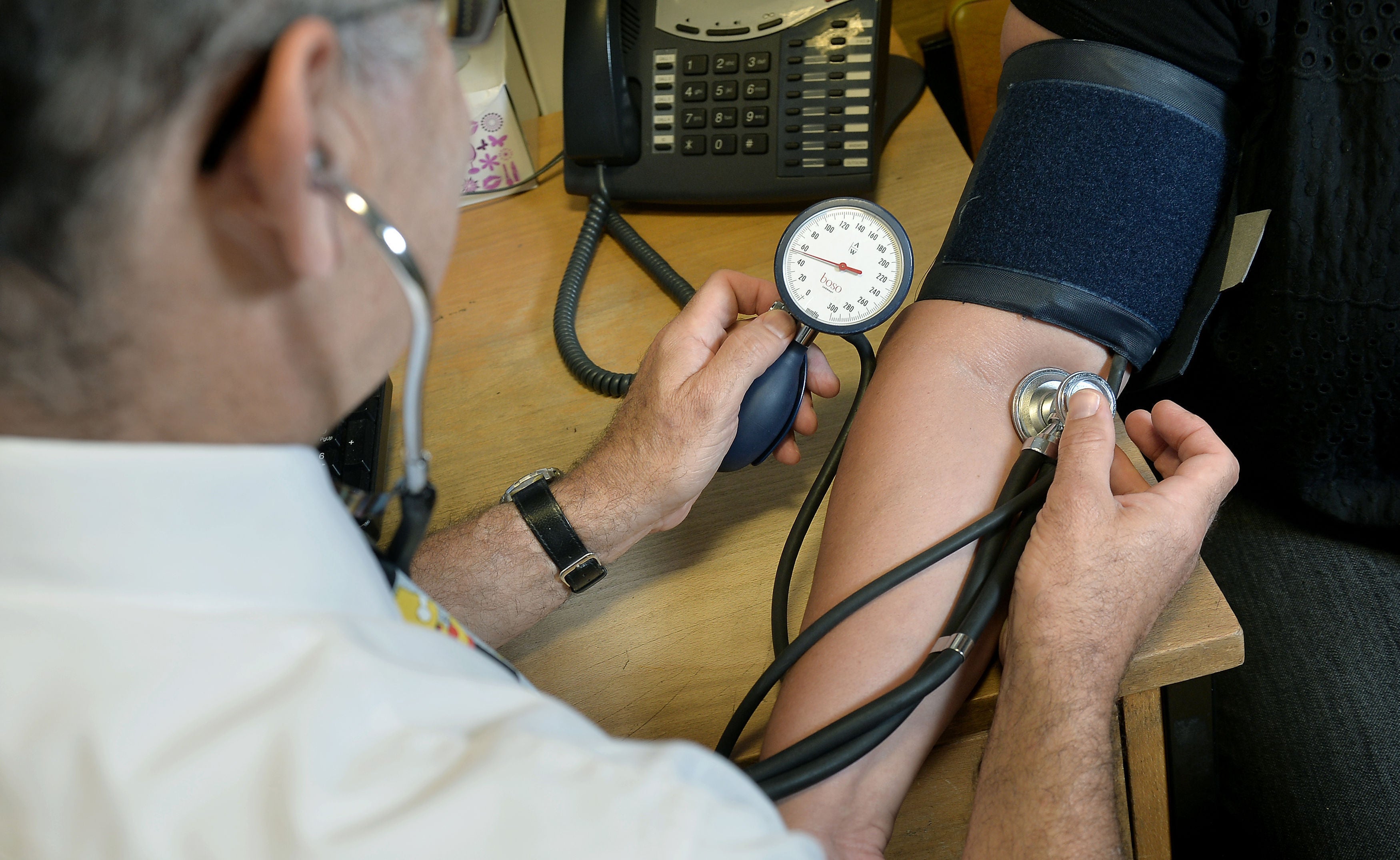UK’s health ‘in decline’ as third of middle-aged adults suffer multiple chronic health conditions
Urgent interventions needed as trend worsening, warn researchers

More than a third of middle-aged adults in the UK have multiple health problems, with those from poorer backgrounds most risk, new research suggests.
Some 34 per cent of people aged 46 to 48 have two or more long-term health conditions, of which at least one relates to their physical health.
Issues include chronic back problems, mental ill-health, high blood pressure, diabetes, asthma, and heavy drinking.
Those who grew up in poorer families, which is defined by the father being unskilled, were 43 per cent more likely to have multiple long-term health problems in their late 40s than those who were wealthier, the study found.
People who grew up in poorer households were also almost 3.5 times more likely to suffer from mental ill-health and arthritis, and had around three times the risk of having poor mental health and high blood pressure.
A link between youngsters having issues in childhood, such as being overweight or internalising problems, and chronic health issues in midlife was also found.
Lead author Dr Dawid Gondek, from University College London (UCL), said: “This study provides concerning new evidence about the state of the nation’s health in midlife.
“It shows that a substantial proportion of the population are already suffering from multiple long-term physical and mental health problems in their late 40s, and also points to stark health inequalities which appear to begin early in childhood.”
Professor George Ploubidis, also from UCL, said: “We found that adults from the most disadvantaged backgrounds, those who had been overweight or obese as children and those who had experienced mental ill-health as teenagers were all at increased risk of poor health later on.
“If these links reflect causal effects, policy and practice targeting these core areas in childhood and adolescence may improve the health of future generations and alleviate potential pressures on the NHS.”
The researchers analysed data from 7,951 adults taking part in a British Cohort Study from when they were born in 1970.
At the age of 46 to 48, in 2016-18, they took part in a biomedical survey, where nurses measured their blood pressure and took a blood sample to check for diabetes. People were also asked about chronic physical health conditions. Mental health and high-risk drinking were also examined through questionnaires.
The data showed that 26 per cent of people engaged in high-risk drinking, 21 per cent reported recurrent back issues, and 19 per cent were experiencing mental health problems.
High blood pressure was reported by 16 per cent of people, 12 per cent were suffering from asthma or bronchitis, 8 per cent had arthritis, and 5 per cent had diabetes in midlife.
The most common combinations of chronic health conditions included the 4 per cent who had mental ill-health and high blood pressure, 3 per vent who suffered from mental health problems and asthma, 2.5 per vent who had mental ill-health and arthritis and 2 per cent who had diabetes and high blood pressure.
A previous major study on 1.7 million people in 2007 aged 45 to 64 put the figure for people suffering multiple health problems at 30 per cent, which suggests that more recent gene.
Dr Gondek said: “Compared to previous generations, it appears that the health of British adults in midlife is on the decline.”
Alison Giles, associate director for health at the Centre for Ageing Better, said that the study highlights the “urgent need” for government to “promote environments that support healthy behaviours” and to ensure that people with long-term conditions “regardless of their postcode or income” receive treatment and support.
The study has been published in the journal BMC Public Health.
Join our commenting forum
Join thought-provoking conversations, follow other Independent readers and see their replies
Comments
Bookmark popover
Removed from bookmarks